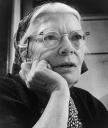Models to Suit Many
Five of the 10 belong on the usual-suspects list—Peter Damien, Catherine of Siena, Jean Gerson, Jan Hus and Gasparo Contarini. The others are on the not-usual list—Gregory the Great, Bernard of Clairvaux, Clare of Assisi, John Henry Newman and Dorothy Day. Missing are reformers who usually (and deservedly) get top billing, like Pope Gregory VII, Martin Luther and Charles Borromeo. From Anderson’s agenda, however, it is clear that he wanted to open up the field of reform so that Catholics with different “temperaments and spiritual dispositions” could find models to suit them. Fair enough, but proceed with caution, lest the temptation to find the present in the past results in a distortion of the past.
I find it on the surface implausible, for instance, that St. Clare “played a critical role in…reforming the problem of sexism.” And is it not misleading to speak of St. Bernard having an “idea of progress” and a “forward looking perspective” on reform? I was left with the impression that Pope Gregory operated with a “discernment” self-consciously similar to what that term conveys today. Anderson makes generalizations, sometimes with a touch of moralizing, that do not always convince, such as, “reformers who lack discernment fall into the same errors as the people they want to change.” Maybe, but how do you know? He sometimes seems to take the criticisms reformers leveled at their contemporaries at face value, whereas denouncing one’s age as the most corrupt of all has been stock in trade for preachers down through the centuries. I find Anderson’s understanding of “reform” and “reformer” so broad that it could be applied to almost any Christian trying to lead others to a more intense spiritual life.
But these are the comments of one professional historian to another, and Anderson is not addressing professionals. For the audience he has in mind, they are not particularly relevant and should not obscure the book’s positive accomplishments. It was refreshing, for instance, to see Newman put so neatly into the controversies of his times and to hear again how distrusted he was by hierarchs. The same goes for Dorothy Day, who never fails to inspire. Gregory the Great is my favorite pope, so I applaud putting him at the head of the list. Hus, burned at the stake by order of the Council of Constance, injects into the narrative in dramatic fashion the high cost of discipleship. These are tales well told and, as Anderson’s footnotes demonstrate, told by a well-informed author.
In his conclusion the author does two things. First, he isolates six strategies his reformers used to effect change. They provide food for reflection. The sixth is especially crucial—that any and all church reform, if it is to be genuine, must be linked to conversion of hearts. For the rest, Anderson takes out after the bishops who so badly mishandled the scandal of sexual abuse by clerics and after all those who abetted them. This is an impassioned call to accountability on the part of ecclesiastical authorities but also, as Anderson insists, on the part of all of us. His theme throughout is that we all play a role in making the church what it is, and that means that each and every one of us bears a burden of responsibility for the church that we cannot shirk.
This article also appeared in print, under the headline “Models to Suit Many,” in the November 5, 2007, issue.








